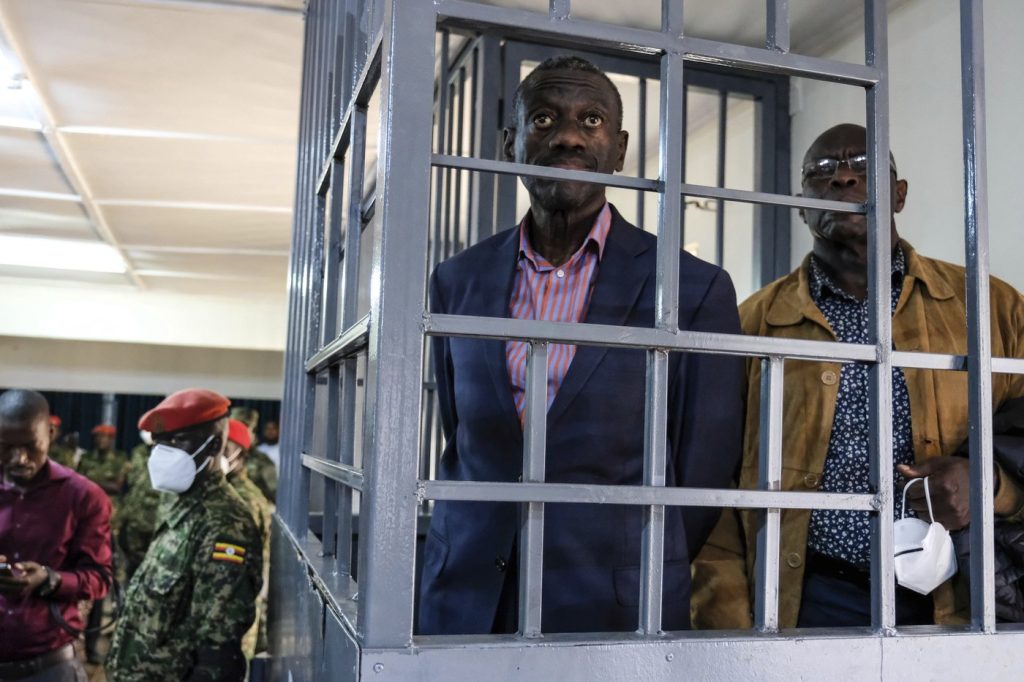KAMPALA, Uganda (AP) – Kizza Besigye, a prominent opposition figure in Uganda, is set to stand trial on serious charges of treachery, as ruled by a military court on Tuesday. This development intensifies the legal challenges Besigye faces ahead of the upcoming presidential elections slated for 2026. Treachery, under Ugandan law, carries the potential sentence of death for those found guilty.
Besigye, who has contested the presidency four times, was reported missing in Nairobi, Kenya, on November 16. Following his disappearance, he and his co-defendant, Obeid Lutale, an assistant, appeared in a military court in Kampala, the capital of Uganda. Besigye has been charged with illegal possession of a firearm and solicitation of military support from abroad to undermine national security. The 68-year-old opposition leader has denied all charges and has been remanded in custody since the proceedings began.
In a notable turn, a military prosecutor amended the charge sheet on Monday to include the treachery charge and to introduce a third suspect, a serving army officer, a move that caught defense attorneys off guard and prompted them to challenge the new developments.
Throughout his political career, Besigye, a qualified physician and former colonel in Uganda's military, has faced numerous arrests and assaults. Despite these challenges, he has never been convicted of any crime. His political journey has seen him serve as president of the opposition Forum for Democratic Change (FDC) party, which was once Uganda's most prominent opposition group. Besigye has been a relentless critic of President Yoweri Museveni, who has been in power since 1986. Their relationship soured in the 1990s when Besigye accused Museveni of drifting towards authoritarianism.
Human rights groups, including Amnesty International, have called for Besigye's release, arguing that his abduction is a clear violation of international human rights law and highlights the misuse of military courts to suppress opposition. Human Rights Watch has characterized Besigye’s trial as another instance of Uganda's authorities employing military-related charges to clamp down on dissent.
The situation surrounding Besigye’s trial is being closely monitored by Ugandans who are wary of the political landscape ahead of the presidential elections. Although President Museveni is anticipated to seek re-election, speculation persists regarding his potential decision to step aside. Museveni’s ruling National Resistance Movement party does not appear to have a clear successor, leading to widespread anxieties about a volatile political transition.
The history of Uganda reveals a troubling pattern, as the country has yet to experience a peaceful transfer of power since gaining independence from British colonial rule in 1962. Besigye's legal battles and the broader political climate underline ongoing issues regarding democratic governance and human rights in Uganda, particularly as the nation approaches critical elections.










